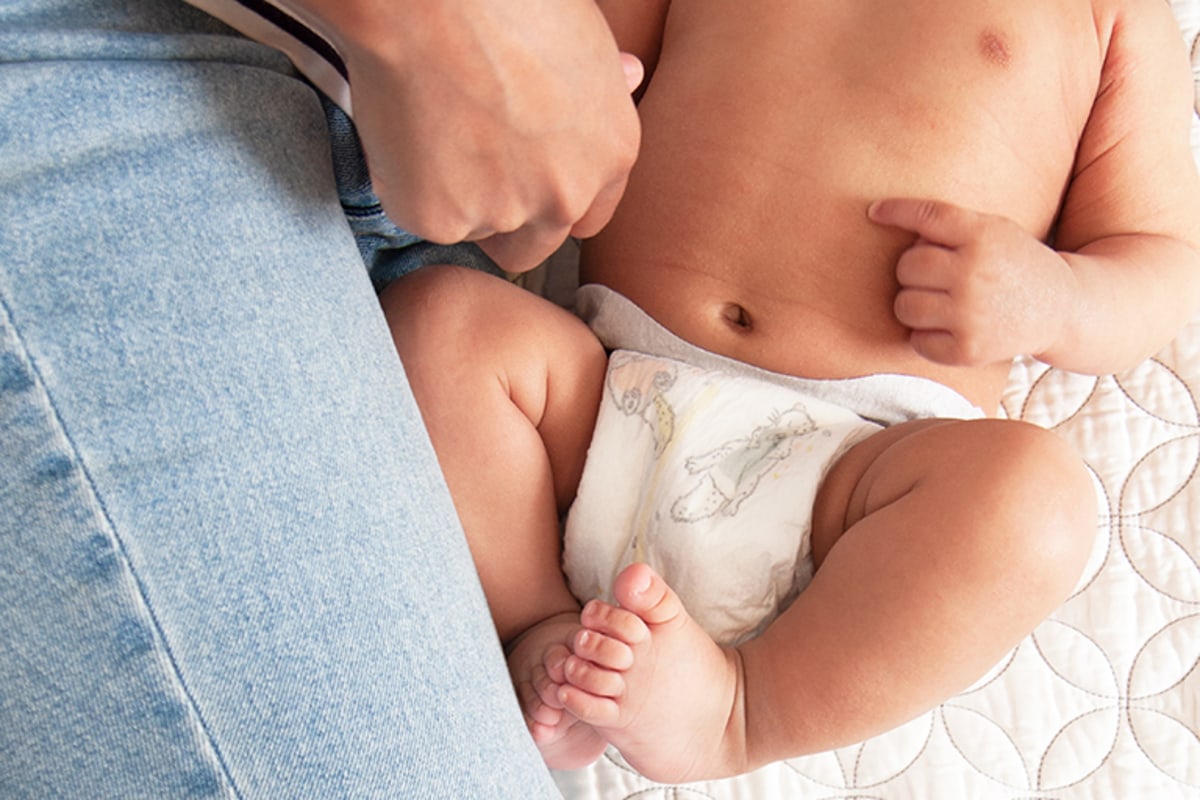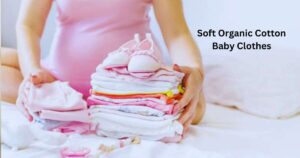What happens if you don’t change a baby’s diaper? Discover the risks, health issues, and how to prevent diaper rash and discomfort.
Regular diaper changes are crucial for a baby’s health and comfort. A soiled diaper left unchanged can result in skin irritation, commonly known as diaper rash, which can cause the baby considerable discomfort. Prolonged exposure to moisture and bacteria can also lead to more severe skin infections.
Ensuring that a baby’s diaper is changed frequently helps maintain their delicate skin’s health and overall well-being. Parents and caregivers should be vigilant and proactive in keeping the baby’s diaper clean and dry to prevent any potential health issues. Clean diapers contribute to a happy, healthy baby, free from unnecessary pain and discomfort.

Credit: www.facebook.com
Health Risks
Changing your baby’s diaper regularly is crucial for their health. Neglecting this task can lead to various health risks. Below, we explore the major health risks associated with not changing a baby’s diaper on time.
Diaper Rash
One of the most common issues is diaper rash. Diaper rash occurs when the baby’s skin is exposed to moisture for too long. The skin becomes red, sore, and irritated. This can cause significant discomfort for the baby.
Diaper rash can be mild or severe. In severe cases, the skin can break open and bleed. This makes the baby more vulnerable to infections. Using diaper creams can help, but frequent diaper changes are crucial.
Infections
Another serious risk is infections. Dirty diapers create a breeding ground for bacteria and fungi. This can lead to skin infections, urinary tract infections (UTIs), and even more severe health issues.
- Skin Infections: Bacteria and fungi can cause painful sores and blisters.
- Urinary Tract Infections: Prolonged exposure to urine can lead to UTIs, which can be painful and require medical treatment.
Babies with weakened immune systems are at a higher risk of infections. Regular diaper changes can significantly reduce these risks.
| Health Risk | Description |
|---|---|
| Diaper Rash | Red, sore, and irritated skin due to prolonged moisture exposure. |
| Skin Infections | Painful sores and blisters caused by bacteria and fungi. |
| Urinary Tract Infections | Infections caused by prolonged exposure to urine. |
Ensuring your baby’s diaper is changed regularly can prevent these health issues. Make it a habit to check and change diapers frequently.
Skin Conditions
Changing a baby’s diaper regularly is crucial for their skin health. Ignoring diaper changes can lead to various skin conditions. These conditions can cause discomfort and long-term issues. Below are some common skin conditions that can arise.
Dermatitis
Dermatitis is a common skin condition caused by prolonged exposure to a dirty diaper. It leads to red, inflamed, and irritated skin. A baby’s skin is very sensitive. Prolonged exposure to urine and feces can break down the skin’s natural barrier. This can cause dermatitis.
Symptoms include:
- Red patches
- Swelling
- Itchiness
To avoid dermatitis, keep the baby’s diaper area clean and dry. Apply a protective diaper cream during each change.
Yeast Infections
Another risk of not changing a diaper is yeast infections. These infections thrive in warm, moist environments. A dirty diaper is the perfect breeding ground for yeast. Candida yeast is a common cause of these infections.
Signs of a yeast infection include:
- Bright red rash
- Raised, scaly areas
- Small red bumps
Keeping the diaper area dry can help prevent yeast infections. Use an antifungal cream as recommended by a pediatrician.
Discomfort And Pain
Not changing a baby’s diaper can lead to significant discomfort and pain. Babies have sensitive skin. Prolonged exposure to wetness can cause irritation. This can result in crying, irritability, and sleep disruptions. Understanding these issues helps in ensuring the baby’s comfort.
Crying And Irritability
A wet or soiled diaper causes crying and irritability in babies. They feel discomfort, and their skin can become red and sore. Babies communicate their discomfort through crying. Ignoring a dirty diaper can lead to prolonged periods of distress. Parents should change diapers regularly to prevent this.
Sleep Disruptions
Sleep disruptions are common in babies with wet diapers. Wetness makes it hard for them to sleep peacefully. Babies need good sleep for proper growth. A dirty diaper can wake them up frequently, causing restlessness. Ensuring clean diapers can help babies sleep better and stay healthy.

Impact On Development
Changing a baby’s diaper is crucial for their growth and well-being. Ignoring this can lead to several developmental issues. Below, we will explore the impact on development in more detail.
Delayed Motor Skills
A soiled diaper can cause discomfort and restrict a baby’s movements. This limits their opportunity to practice motor skills like crawling and walking. Babies need freedom to move and explore. A clean diaper helps them develop these essential skills.
Emotional Distress
A wet or dirty diaper can make a baby feel uneasy. This leads to emotional distress and crying. Babies rely on caregivers for comfort. A clean diaper helps them feel secure and happy.
Prolonged discomfort can affect their mood and behavior. They may become more irritable and less interactive. Emotional well-being is crucial for overall development. A baby needs to feel loved and cared for.
| Issue | Impact |
|---|---|
| Delayed Motor Skills | Restricted movement |
| Emotional Distress | Increased crying and irritability |
Parental Stress
Changing a baby’s diaper is crucial for their health and comfort. Not changing diapers on time can lead to significant parental stress. This stress can affect the entire family’s well-being. Here, we discuss how it impacts parents.
Increased Anxiety
Parents may face increased anxiety if they don’t change their baby’s diaper. Constant worry about their baby’s health can be overwhelming. Parents might struggle with sleep and daily activities. This anxiety can affect their mental health negatively.
Guilt And Worry
Parents often feel guilty if their baby suffers due to an unchanged diaper. They worry about diaper rashes, infections, and other health issues. The guilt of not providing proper care can be heavy. This worry can turn into a constant source of stress.
| Stress Factor | Impact |
|---|---|
| Increased Anxiety | Loss of sleep, mental health issues |
| Guilt and Worry | Feelings of inadequacy, constant stress |

Credit: www.babylist.com
Long-term Consequences
Neglecting to change a baby’s diaper can lead to serious long-term consequences. These issues extend beyond immediate discomfort and can affect a child’s health and well-being.
Chronic Skin Issues
Leaving a baby in a soiled diaper can cause chronic skin issues. Prolonged exposure to urine and feces leads to persistent diaper rash.
Diaper rash can develop into severe skin infections. Bacteria and fungi thrive in warm, moist environments. This makes a soiled diaper the perfect breeding ground for infections.
Chronic skin conditions may require medical treatments. Treatments can include topical ointments and antibiotics. These treatments can be expensive and uncomfortable for the baby.
Behavioral Problems
Infants left in soiled diapers may develop behavioral problems. Constant discomfort can lead to irritability and fussiness. This can disrupt sleep patterns, making the baby more cranky and tired.
A baby in discomfort may struggle to form secure attachments. This can affect their emotional development. Poor attachment can lead to issues with trust and emotional regulation later in life.
Parents may notice delays in developmental milestones. These can include crawling, walking, and talking. Such delays impact the child’s ability to interact socially and academically.
| Consequence | Description |
|---|---|
| Chronic Skin Issues | Persistent diaper rash, skin infections, need for medical treatments. |
| Behavioral Problems | Irritability, disrupted sleep, delayed developmental milestones. |
Preventive Measures
Changing a baby’s diaper regularly is crucial for their health. Taking preventive measures can help avoid several complications. Understanding these measures ensures your baby stays healthy and comfortable.
Regular Diaper Changes
Regular diaper changes are essential to prevent rashes and infections. A baby’s skin is delicate and sensitive. Wet or soiled diapers can cause irritation quickly. Changing diapers every 2-3 hours is ideal.
Nighttime changes are also important. Use overnight diapers for longer protection. Monitor diaper wetness with a wetness indicator. Keeping your baby dry helps them sleep better.
Proper Hygiene
Proper hygiene is key to preventing diaper rash and infections. Always wash your hands before and after changing the diaper. Use baby wipes or a damp cloth to clean the baby’s skin. Ensure you clean thoroughly but gently.
Applying a diaper rash cream can protect the skin. Let your baby’s skin air out for a few minutes between changes. This can prevent moisture build-up.
Consider the following hygiene tips:
- Use a clean changing mat.
- Dispose of used diapers properly.
- Sanitize the changing area regularly.
Maintaining proper hygiene can keep your baby safe and happy.
Expert Advice
Changing a baby’s diaper is crucial for their health and comfort. Neglecting this simple task can lead to serious issues. Let’s explore expert advice on this topic.
Pediatrician Guidelines
According to pediatricians, a baby’s skin is delicate and sensitive. Not changing diapers promptly can cause diaper rash and skin infections. Urine and feces contain bacteria and enzymes that irritate the skin. Keeping a baby in a wet or soiled diaper increases the risk of urinary tract infections (UTIs).
| Issue | Impact |
|---|---|
| Diaper Rash | Red, inflamed skin causing discomfort |
| Skin Infections | Serious infections needing medical treatment |
| UTIs | Can lead to fever and kidney issues |
Parental Tips
- Check diapers every 2-3 hours.
- Always change a wet or soiled diaper immediately.
- Use a barrier cream to protect the skin.
- Ensure the diaper area is completely dry before putting on a new diaper.
- Opt for breathable, hypoallergenic diapers.
Following these pediatrician guidelines and parental tips can help keep your baby healthy and happy. Regular diaper changes are essential for preventing discomfort and health issues.
Frequently Asked Questions
What Are The Risks Of Not Changing A Baby’s Diaper?
Not changing a baby’s diaper can lead to severe diaper rash. It can also cause infections and discomfort for the baby.
Can A Dirty Diaper Cause Health Issues?
Yes, a dirty diaper can cause health issues. Prolonged exposure to waste can lead to skin infections and urinary tract infections.
How Often Should A Baby’s Diaper Be Changed?
A baby’s diaper should be changed every 2 to 3 hours. This helps prevent diaper rash and infections.
What Are The Signs Of Diaper Rash?
Redness, swelling, and small bumps are signs of diaper rash. The baby may also show discomfort or cry during diaper changes.
Conclusion
Neglecting to change a baby’s diaper can lead to serious health issues. Prompt diaper changes help prevent infections and discomfort. Prioritize regular diaper changes to ensure your baby’s well-being. By maintaining good hygiene, you protect your baby’s skin and overall health.
Always keep diaper changes as part of your daily routine.




